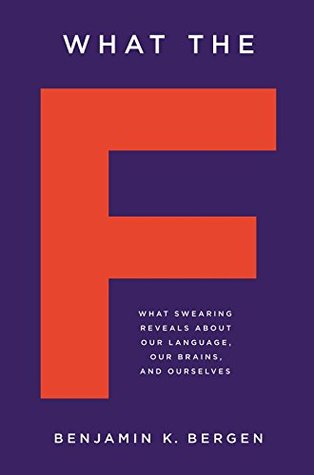More on this book
Kindle Notes & Highlights
Started reading
January 23, 2019
Studying profanity teaches us where language gets its power to shape minds and to shape the world, how our brains learn language, and how language must have evolved. Throughout its several-thousand-year history, the scientific study of language has, if anything, mostly tried to ignore profanity. But I’m prepared to make the argument that this has been to our disadvantage. In certain ways, you can learn more from four-letter words than from fifty-cent ones.
Words, in short, have the power, by their mere utterance, to affect how people feel and how they feel about you.
It can increase your ability to withstand pain (compare the analgesic effect of yelling fuck! when you hammer your thumb with the effect of yelling duck!).
The word profanity originally referred to the first group. In Latin profanus literally means “outside the temple,” denoting words or acts that desecrate the holy.
The second place English profanity comes from is language relating to sex and sexual acts.
Third is language involving other bodily functions—things that come out of your body, the process of getting them out of your body, and the parts of your body that they come out of.
And finally there are the slurs. Among the most offensive words on each of the lists (when the lists saw fit to ask about them) are terms like nigger, faggot, retard, and the like. These words are offensive by dint of their derogatory reference to people based on some group that they’re perceived as belonging to, defined in terms of sex, sexual orientation, ethnicity, religion, and so on.
Looking just at English, you’ll find that nearly all the most profane words in Great Britain, New Zealand, and the United States fall into one of these four categories: praying, fornicating, excreting, and slurring. This is an important point, important enough to name a principle for it. I hereby propose we call it the Holy, Fucking, Shit, Nigger Principle.
First, languages tend to draw from similar domains for their profanity. The Holy, Fucking, Shit, Nigger Principle isn’t just about English. It’s about language. And that suggests that the forces that make words become profane in English may be present across human experience, regardless of native language. And second, despite similarities across languages, cultural idiosyncrasies play a role in shaping how profanity in a language will work and how it will be distributed.
If you want to curse in Japanese, you literally have to do it in English or Spanish.
There doesn’t appear to be much about profanity that is truly universal—shared without exception by all languages and cultures.
The answer probably lies in taboos not about language but about the world. Across cultures, people exhibit taboos about the very things that provide the vocabulary for profanity.
This is sometimes called the “sound-symbolic feeling”: the sounds of words in your language feel like they suit their meanings.


